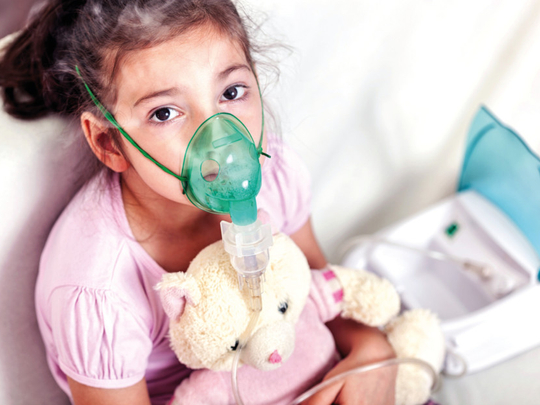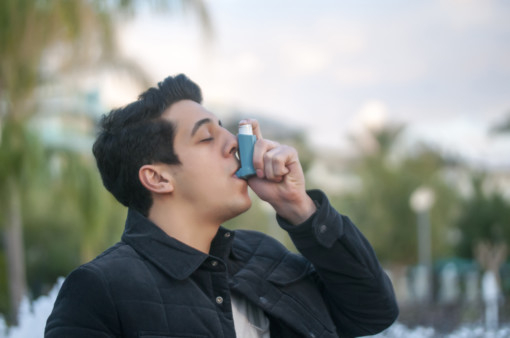
Abu Dhabi: More than 40 per cent of patients suffering from asthma in the Middle East and North Africa region are still failing to adequately manage the condition, and doctors have therefore called for better compliance with treatment and management regimens.
As many as 13.5 per cent of people in the UAE are believed to be suffering from asthma, a chronic disease that affects the airways in the lungs. In asthmatic patients, the airways are often inflamed, and the muscles around them can become more swollen in the presence of triggers like heat, dryness, mould spores and dust. As a result, the patient experiences symptoms like coughing, wheezing, shortness of breath and chest tightness.
Without proper management, the respiratory condition can, in the long term, lead to permanent and irreversible symptoms like fatigue, shortness of breath, coughing, wheezing, and general discomfort and irritability, warned Dr Arun Arya, head of the department and consultant pulmonologist at NMC Royal Hospital.
“Instead of adhering to treatment regimens with inhalers that are designed to reduce the risk of asthma attacks, many patients tend to simply use nebulisers after an attack. These treatments do help open the airways by relaxing the muscles for a short while, but in the long term, they can cause fatigue and even affect heart function. This is why the recent ESMAA finding on uncontrolled asthma in 40 per cent of patients in the region is alarming,” Dr Arya told Gulf News.
In a few cases, uncontrolled asthma can even prove fatal, and patients therefore cannot afford to ignore the condition without seeking treatment, added Dr Zaid Zuomot, consultant pulmonologist at Cleveland Clinic Abu Dhabi’s Respiratory and Critical Care Institute.
The doctors’ warnings were issued on World Asthma Day, which is marked on Tuesday (May 1) with the aim of improving awareness about the condition.
Dr Zuomot said that asthma patients should take special care to avoid triggers during the summer, including trying to stay cool, avoiding sudden shifts between hot and cold environments and staying indoors during sandstorms if possible.
“If you wake up once a week due to night spasms and chest tightening, it is time to visit your physician to re-evaluate your treatment regimen,” he advised.
“Among asthma patients, symptoms are often worse among children, the elderly and middle-aged women who are obese or overweight,” he added.
Patients should also understand that there are now new treatments to prevent the inflammation that causes asthma attacks, the doctors added.
“Using inhalers correctly can help prevent inflammation in the first place. Otherwise, airways that are constantly inflamed over a long period of time can become stiff in a way that is irreversible,” Dr Arya said.
He added that inhalers are designed to have a long-acting effect, unlike nebulisers that only open up the airways for a short while.
Parents whose children suffer from asthma should take special care to ensure that they do not suffer unnecessarily during the summer months,” Dr Arya said.
In general, Dr Zuomot also advised residents to cover their nose and mouth during sandstorms, and to have their air-conditioning ducts serviced to avoid the growth of mould.
Tips to avoid allergic reactions
■ Find out what things make breathing difficult and avoid them if possible. Common allergens include pollution, dust, heat and sudden shifts between hot and cold environments.
■ Use your medication as prescribed if you suffer from asthma, and visit a physician if you find that symptoms are exacerbated during the summer months.
■ Have your air conditioning ducts services and maintained.
■ Thoroughly clean fabrics around the home that can trap dust and other irritants, including curtains, rugs and sheets.
■ Keep your home clean and free of pests and rodents.
■ Leave shoes at the door as they can track allergens.
■ Quit smoking.
Source: Cleveland Clinic













